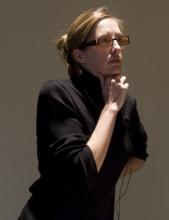What Is It
When someone acts without regard for our feelings or needs, a natural response is to feel resentment toward that person. But is that a rational response? What if there's no such thing as free will? Is blame still appropriate in a deterministic universe? Or are we simply genetically programmed to respond emotionally to perceived injuries? John and Ken talk freely with Pamela Hieronymi from UCLA, author of Reflection and Responsibility.
Listening Notes
John and Ken begin by discussing the relationship between freedom, blame, and resentment. We want to blame people for the acts that they commit freely and are therefore morally responsible for. If those acts harm others, the harmed person may also feel resentment towards the actor. However, one also blames fatty foods for causing obesity in a different way than one blames another person for deliberately breaking into a house. A person could resent a home intruder, but would not resent his French fries for causing his weight gain. What makes resentment special in the former case? Is it because the actor is free? Is it because the intruder has the capacity to deliberate but fails to act with good will towards the homeowner?
Pamela Hieronymi, professor of philosophy at UCLA and author of “The Will as Reason”, joins John and Ken to discuss talk about freedom and resentment. Pamela furthers an idea of resentment that John suggested earlier – it is the attitudes of actors that dictate whether they are worthy of blame and resentment, not a metaphysical conception of freedom. We may feel a whole class of emotions towards a person, like gratitude and resentment, based on whether another’s will is of a certain quality. John explains that this is a “compatibilist” attitude towards free will, one that alleges that free will does not depend on whether actions are metaphysically determined or not. We blame others based on features that we think of as causally connected to other features about the world. But “incompatibilists” believe that truly free decisions must originate within a person, not simply arise as a result of prior events. This is a heated debate in philosophy. Taking questions from callers, John, Ken, and Pamela discuss the difference between resentment and revenge, whether sociopaths should be blamed and resented for their wrongful actions, and what role emotion plays in addition to reason in forming resentments.
In the final segment, they begin by discussing self-blame, which Pamela classifies as “guilt.” They discuss whether it may be unwise in many cases to feel guilt or resentment towards others, even in cases when these feelings are justified. But even if it is unwise or harmful to feel resentment, can you will yourself out of these feelings? Ken also wonders what someone who is the object of blame and resentment should do, kicking off a discussion on whether resentment is an interpersonal moral failing or a failing that only depends on the rightness or wrongness of the actions of the person being blamed. They also discuss the function of forgiveness – what happens when people forgive? And how can excuses prompt such forgiveness? John and Ken say goodbye to Pamela with a much more developed understanding of the debate on the kind of freedom needed to justify blame and resentment.
- Roving Philosophical Reporter (5:58): Caitlin Esch visits a high school and talks to students to better understand the nature of freedom, blame, and resentment. She also interviews Rick, who discusses his resentment and revenge after a college relationship gone wrong.
- 60-Second Philosopher (48:47): Ian Shoales discusses the self-reliant attitudes that arise from people conceiving of themselves as having the power to will– from blogging personal views to starting a business, people want to exercise their abilities to act as their own agents.
